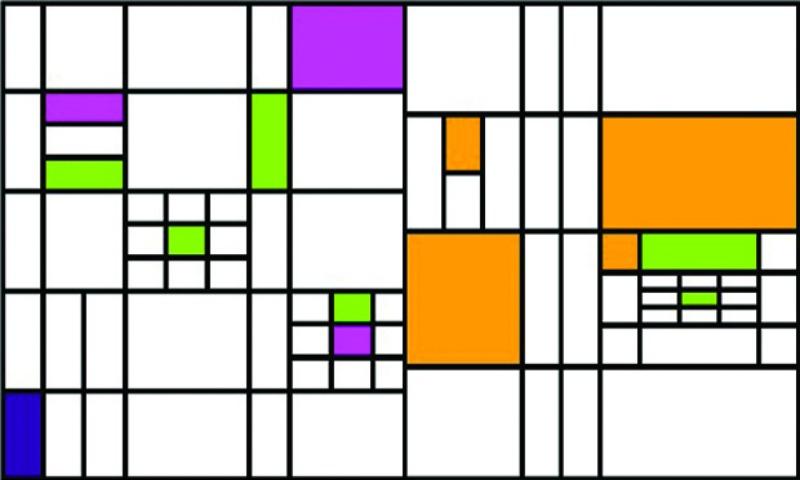What if Mondrian Were a Programmer?
Jenn Schiffer is a software engineer and also an art lover. So when she attended a conference on the programming language Javascript in Chicago last year, she spent a lot of her time exploring the Art Institute of Chicago and looking at the city’s great collection of public art. Her presentation at the conference was about using HTML tables to display statistics, but it started her thinking about artists using tables. Piet Mondrian’s famous “Composition No. 10,” a grid of black lines on canvas with blocks of primary colors at the edges, is probably the most mathematical-looking piece of modernist art. Schiffer decided to see whether she could replicate it using Javascript. A week later, vart.institute was born.
Vart (it rhymes with fart) is Schiffer’s experiment in teaching herself, and others, more about art by coding. She decides on a way to replicate or elaborate on an artist’s work in Javascript, and writes about the process and the artist. Using her program, you can generate works similar to “Composition No. 10,” and tweak the size and nature of the grids, as well as the colors. After that, she moved on to another Javascript art project: this one focused on the surrealist Ren Magritte.
When she’s mixed art and code before, Schiffer’s colleagues have dismissed her work as trivial. But Vart has generated some interesting feedback from other programmers. In the case of her Mondrian generator, others shared their programs also inspired by Mondrian.
Not every artist is as easy to code, such as American impressionist Mary Cassatt. Schiffer found that Cassatt’s work, which features portraits with blended and overlapping colors, challenging. But Schiffer did manage to build a tool that sketches in Cassatt’s style based on user-uploaded photos. The tool is fascinating to play with, even though it’s still in development. Like an art student sketching at a museum, Schiffer is still learning.
Create a faux Mondrian:
Create a fauxMagritte:
